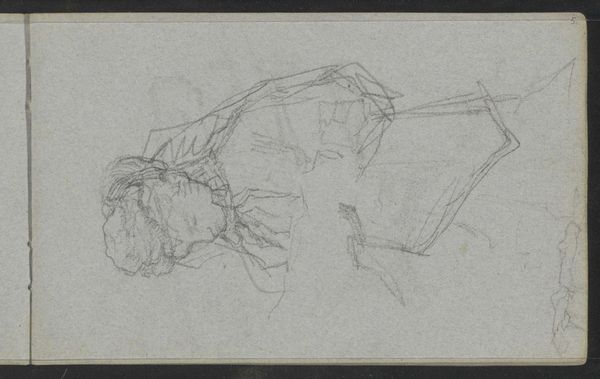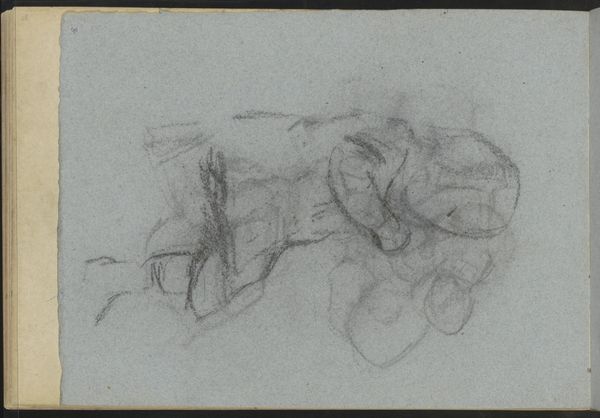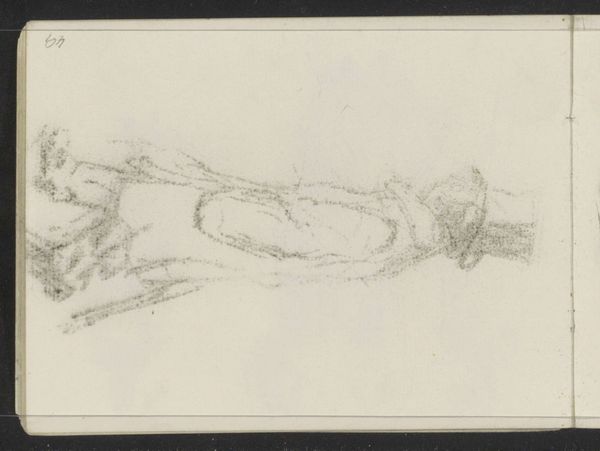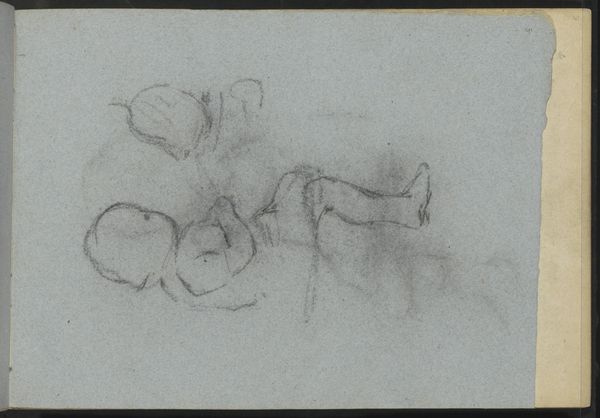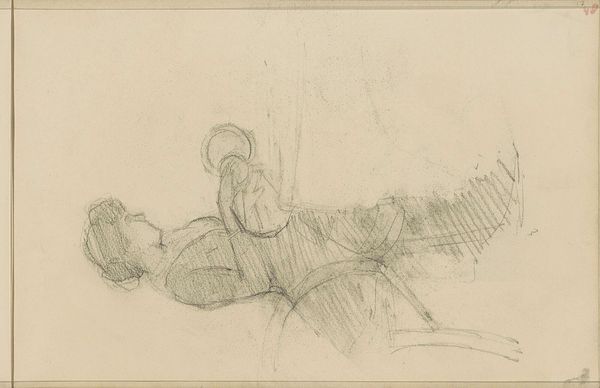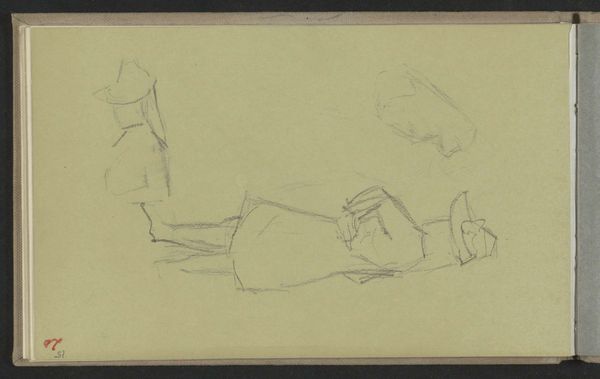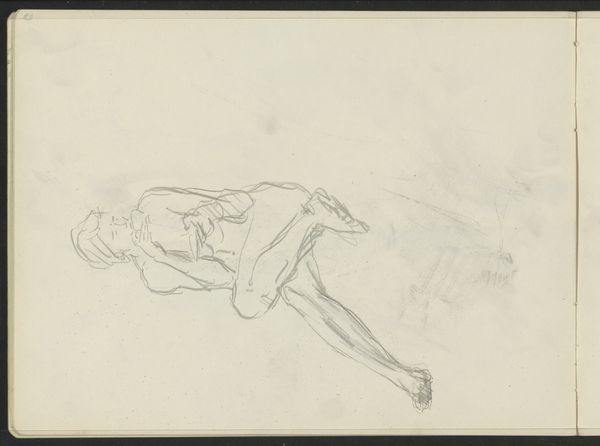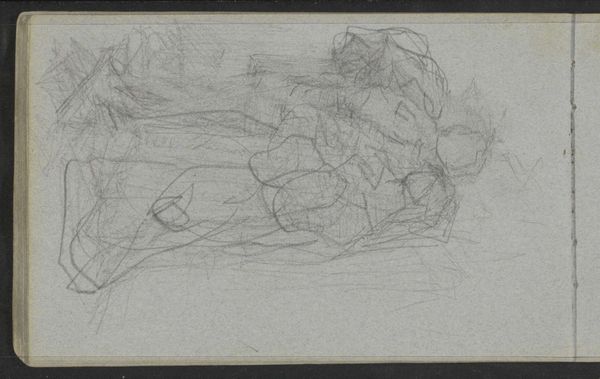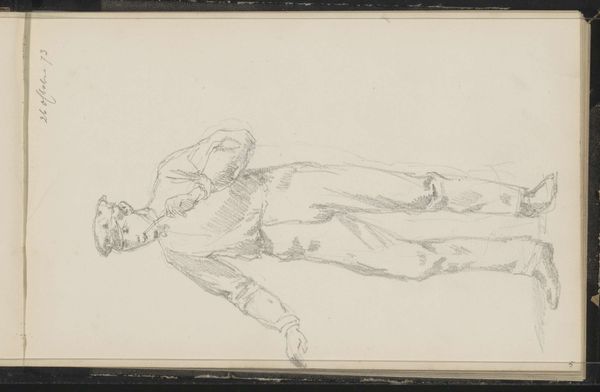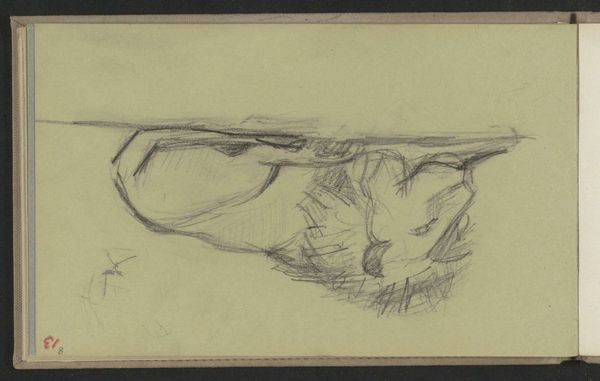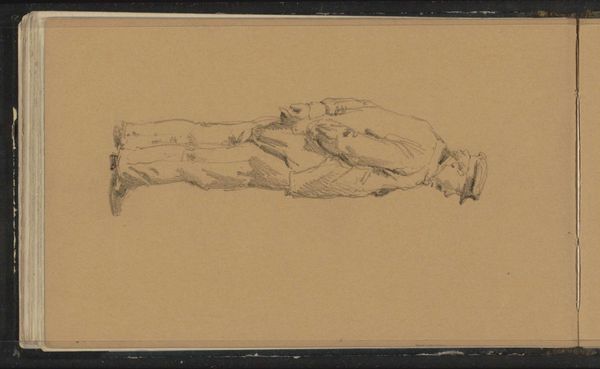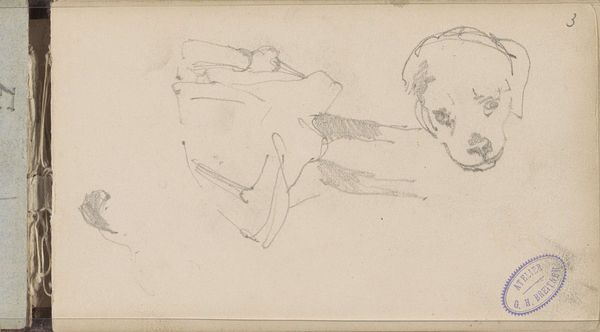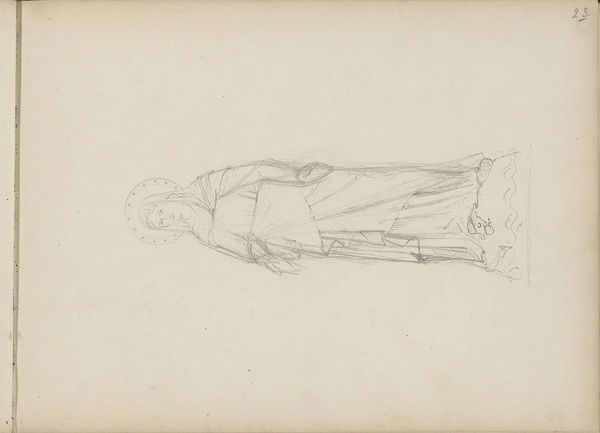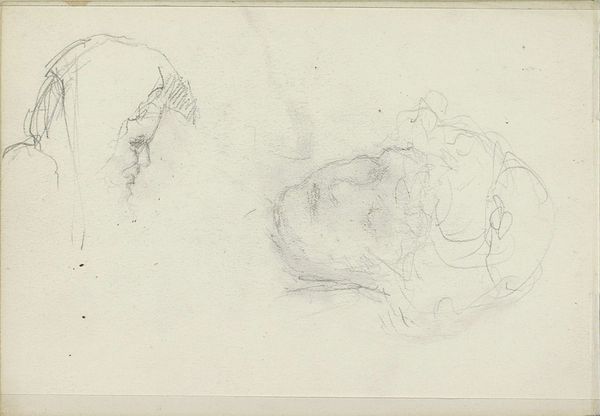
drawing, pencil
#
portrait
#
drawing
#
pencil sketch
#
figuration
#
pencil
Copyright: Rijks Museum: Open Domain
Editor: This is "Liggend Meisje," or "Reclining Girl," a pencil drawing by Matthijs Maris, sometime between 1849 and 1917. The sketch is so delicate, almost ephemeral. What story do you see hidden in these lines? Curator: It's tempting to read this as simply a tender portrayal of vulnerability, but I wonder, considering the historical context and Maris’s own life – the political upheaval, his eventual retreat from society – could this reclining figure represent something more complex? Is it resignation? Protest through passivity? Consider how gendered expectations confined women to the domestic sphere. Could this be a commentary on those limitations? Editor: That's a powerful interpretation. I hadn't thought about it in terms of social critique. Are you suggesting the act of reclining itself is significant? Curator: Absolutely. Think about the history of reclining female figures in art, often objectified, passively available to the male gaze. Here, however, the lack of detail, the ambiguity of the setting, the sketch-like quality—it all resists that tradition. Perhaps it’s reclaiming agency, rejecting imposed roles. How does that reading sit with you? Editor: It shifts my perspective. Instead of just seeing a girl at rest, I see a figure pushing back against something, even in stillness. Curator: Precisely. It’s a reminder that even seemingly quiet images can be sites of resistance. This work encourages us to consider not just what is depicted, but also what it resists, what conversations it sparks about gender, power, and representation. Editor: It’s incredible how much history and theory can be layered into such a simple sketch. Thank you for shedding light on its complexities! Curator: And thank you for bringing your insightful questions! It’s through these dialogues that we continually re-evaluate art and its connection to the world around us.
Comments
No comments
Be the first to comment and join the conversation on the ultimate creative platform.
